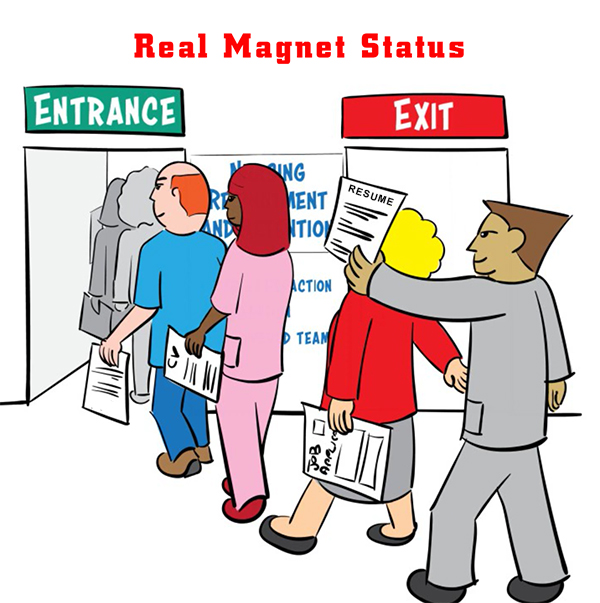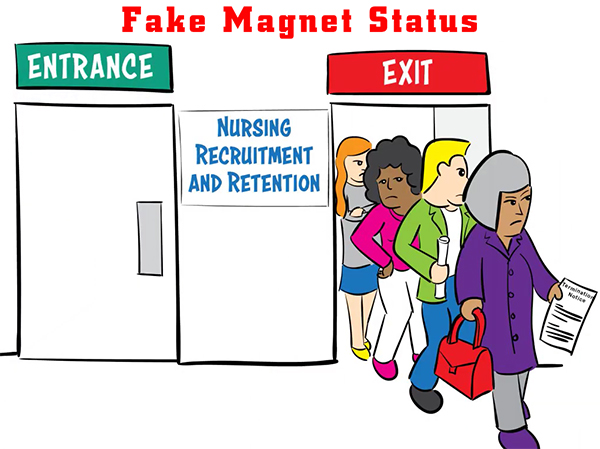The idea of assigning the Magnet Status to hospitals is based on well-researched and proven fact that the nurse-friendly working environment translates into a high quality nursing care that in turn produces superior patient outcomes. By “nurse-friendly work environment” we mean the work environment where:
- Hospital’s staffing policies support the professional obligation of bedside nurses to provide high-quality care.
- Bedside nurses are not forced to work without breaks and/or lunches.
- Bedside nurses are allowed to exercise independent judgment and their the decision-making authority is acknowledged and incorporated into the norm.
- Bedside nurses participate in all levels of decision making and are valued partners in making policy, directing and evaluating clinical care, and leading hospital operations.
- Bedside nurses are supported at every level to ensure that they can optimally focus on the priorities and requirements of patient and family care.
- Bedside nurses are engaged and have a final word in the selection, adaptation, and evaluation of technologies that increase the effectiveness of nursing care delivery.
- Bedside nurses are recognized for their contributions and the value they bring to the work of the organization.
- Hospital leaders create and sustain a healthy nurse-friendly work environment by providing necessary financial and human resources, and by developing policies supporting bedside nurses.
In reality, instead of improving the work environment for nurses to achieve spectacular health outcomes for their patients, many hospitals try to get Magnet status by creating an illusion of “high quality care” provided by “happy” nurses. Such hospitals are easily recognized by:
- Having countless management-driven nursing committees that do very little to actually improve the quality of care, and exist solely to create an illusion that nurses participate in all levels of decision making known as “shared governance”
- Favoritism directed against bedside nurses who are actually trying to advocate for improved working conditions to actually improve the quality of nursing care provided to their patients
- Severely compromised ability of bedside nurses to exercise independent judgment
- Excessive documentation to the point that nurses spend more time on documentation than on delivering actual patient care
- Policies and rules that are focused less on patient-centered care and more on technology regardless of the risks of harm associated with technology
- Total indifference to bedside nursing opinion when it comes to selection, adaptation, and evaluation of technologies that supposed to increase the effectiveness of nursing care
- Environment where bedside nurses are forced to do everything by hospital-written, profit-oriented mandates, regardless of whether it makes sense
- Chronic under staffing and lack of support to bedside nurses
- Increased workload for bedside nurses without any increase in pay.


